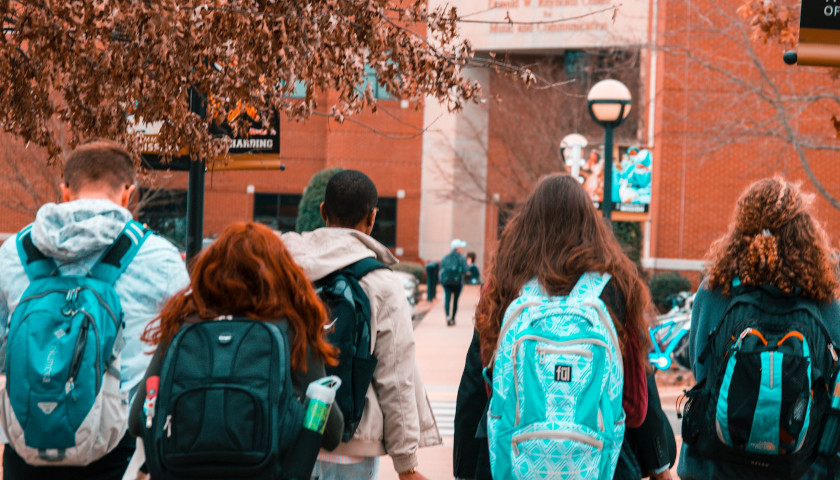by Katelynn Richardson
Michigan State University provides students with reporting system to achieve what the school describes as a “safe and supportive environment” for its community members.
The school’s Culturally Inclusive College Sharing System (CIC) is an online submission form allows the university to “track and respond to behaviors and situations that work to support or detract from [its] goals of a safe and supportive environment.”
The form tells students that some protected speech can still warrant a report. Anything intended to “intimidate, demean, mock, degrade, marginalize, or threaten” their identities, real or perceived, is worth notifying the university about. Actions need not be intended to harm and can do as little as promote a “negative, hostile, or unwelcoming environment for the target.”
Students can specify whether they are requesting the college to take action or are simply supplying information to help “track trends and help determine patterns.” The second kind of report also allows students to share good deeds that support diversity and inclusion goals.
MSU’s CIC system is similar to the widespread COVID-reporting strategies that have been adopted by universities over the past year, which have encouraged students to report peers who do not comply with COVID-19 regulations.
University strategies for maximizing COVID-19 compliance range from online forms to enlisting students as health ambassadors and influencers, as well as paying those who encouraged mask wearing, distancing, and informing the college of peer vaccine attitudes.
The University of Miami hired 75 student ambassadors to influence peers to follow health guidelines on campus, the school announced in November 2020. The university website quotes one ambassador saying her cohort are so well-recognized by their shirts, that students “automatically” fix their masks when seeing them.
For reporting specifics to encouraging diversity goals, MSU’s system also is not unique. Schools from Sacramento State to Harvard University sponsor their own bias reporting.
The Bias-Related Incident Reporting form at Harvard Medical School, which is designed to ensure every community member feels “that their experiences reflect the School’s values of diversity, equity, and inclusion,” allows students to submit reports anonymously.
While the results of a report aren’t clear, the FAQ section explains that those who exhibit “behaviors motivated by bias” will be provided opportunities to gain “greater awareness of resources and pathways for ongoing personal development and growth on these issues.”
Since COVID-19, colleges across the country have found new ways to track students using more sophisticated technology.
Multiple schools, such as the University of Cincinnati (UC), have developed apps to assist in the tracking of student symptoms.
Until the Fall 2021 semester, UC students were required to conduct health checks on their UC COVID Check App every morning. Without a “green pass,” students would not be permitted to enter any buildings on campus.
University of Pennsylvania, New York University, Yale University, the University of Arizona, and others have used similar programs.
Oakland University took it further, announcing in July 2020 the “BioButton,” a small device worn on the chest to track COVID symptoms, would have been required for all residents until nearly 2,500 students signed a petition and pressured the school to backtrack on its decision.
Before COVID-19 hit the US in spring 2020, Campus Reform reported that January that the the University of Missouri announced a tracking app designed to ensure student athletes were attending class by pinpointing their location.
But currently, with the transition to online classes maturing, test proctoring software from companies like ProctorU and Proctorio have risen in popularity.
To prevent cheating, software features include tracking student eye movement, recording the computer screen and room surroundings, and listening through a microphone.
Schools including the University of Illinois at Urbana-Champaign already stopped using the software, following a student petition with over 1,000 signatures.
But university surveillance also extends beyond school-sponsored tools and programs.
In August 2020, Northeastern University threatened to rescind admission for 115 students who responded to an Instagram poll–not officially connected to the university–indicating they would attend parties during the coming semester. The pollster was nonetheless contacted by the school and asked to report the names of students who responded.
While the Northeastern students were not suspended, other students have been, making the consequences of tracking real.
In late September, Penn State University suspended 117 students for not complying with a COVID-19 testing requirement. Students are not allowed to attend classes in-person or online, or even live on campus while they are suspended, according to a university statement.
That same week, Purdue University also suspended eight students, put 18 individuals on a diversion program, and had one leave the university for missing surveillance testing required for unvaccinated students.
Also last month, Campus Reform reported that 80% of students report self-censoring their views.
Many of the survey respondents indicated that they do not always feel safe expressing themselves honestly in a university environment.
Campus Reform reached out to every university mentioned; this article will be updated accordingly.
– – –
Katelynn Richardson is a Senior Nevada Campus Correspondent with Campus Reform. She is a junior at the University of Nevada, Las Vegas majoring in English with a concentration in creative writing. She works part-time as a copywriter and enjoys blogging about everything from books to culture and theology.






[…] reported in October, Michigan State University (MSU) provides students with a reporting system to achieve what the […]